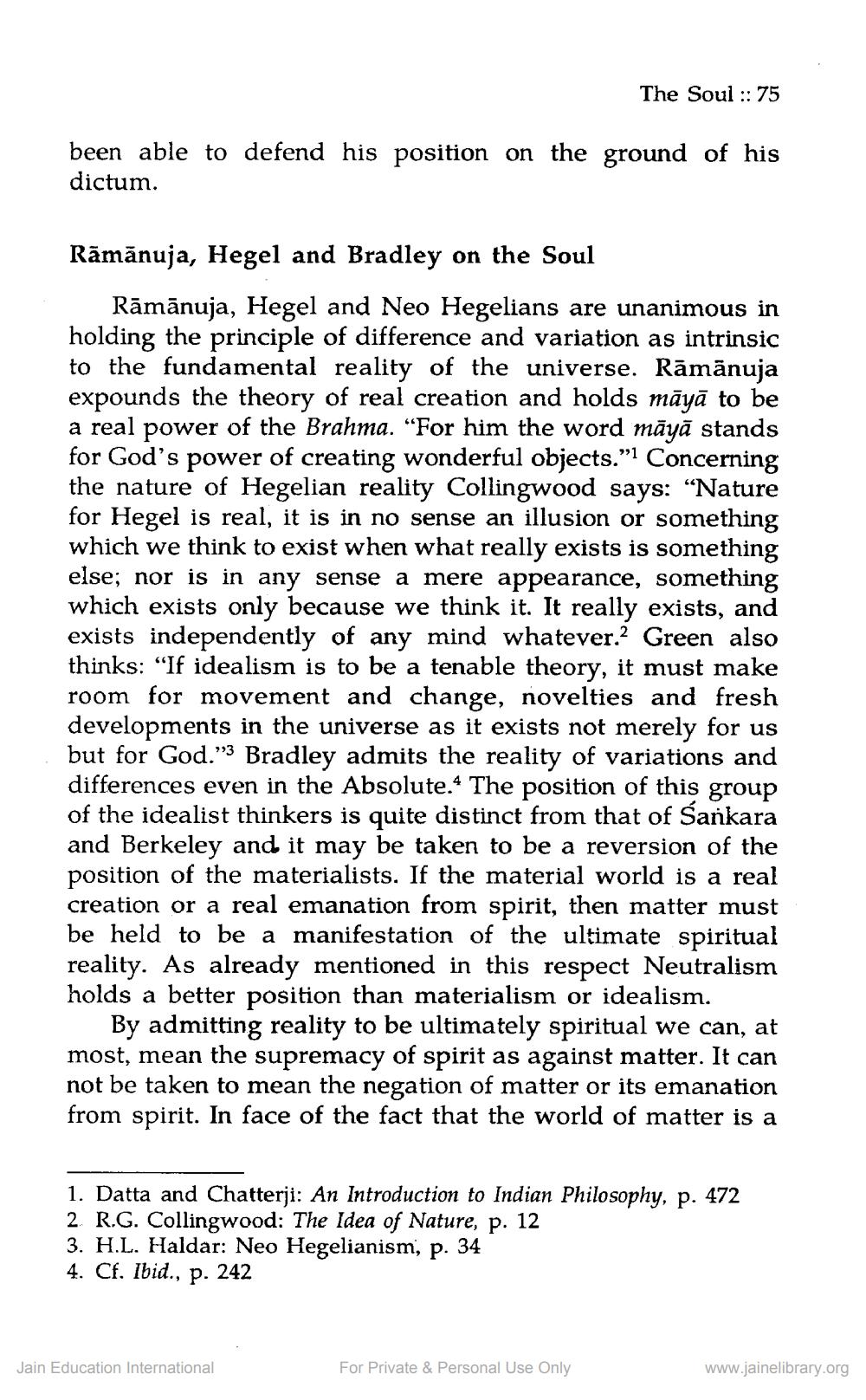________________
been able to defend his position on the ground of his dictum.
The Soul: 75
Rāmānuja, Hegel and Bradley on the Soul
Rāmānuja, Hegel and Neo Hegelians are unanimous in holding the principle of difference and variation as intrinsic to the fundamental reality of the universe. Rāmānuja expounds the theory of real creation and holds māyā to be a real power of the Brahma. "For him the word māyā stands for God's power of creating wonderful objects." Concerning the nature of Hegelian reality Collingwood says: "Nature for Hegel is real, it is in no sense an illusion or something which we think to exist when what really exists is something else; nor is in any sense a mere appearance, something which exists only because we think it. It really exists, and exists independently of any mind whatever.2 Green also thinks: "If idealism is to be a tenable theory, it must make room for movement and change, novelties and fresh developments in the universe as it exists not merely for us but for God."3 Bradley admits the reality of variations and differences even in the Absolute. The position of this group of the idealist thinkers is quite distinct from that of Sankara and Berkeley and it may be taken to be a reversion of the position of the materialists. If the material world is a real creation or a real emanation from spirit, then matter must be held to be a manifestation of the ultimate spiritual reality. As already mentioned in this respect Neutralism holds a better position than materialism or idealism.
By admitting reality to be ultimately spiritual we can, at most, mean the supremacy of spirit as against matter. It can not be taken to mean the negation of matter or its emanation from spirit. In face of the fact that the world of matter is a
1. Datta and Chatterji: An Introduction to Indian Philosophy, p. 472 2. R.G. Collingwood: The Idea of Nature, p. 12
3. H.L. Haldar: Neo Hegelianism, p. 34
4. Cf. Ibid., P. 242
Jain Education International
For Private & Personal Use Only
www.jainelibrary.org




